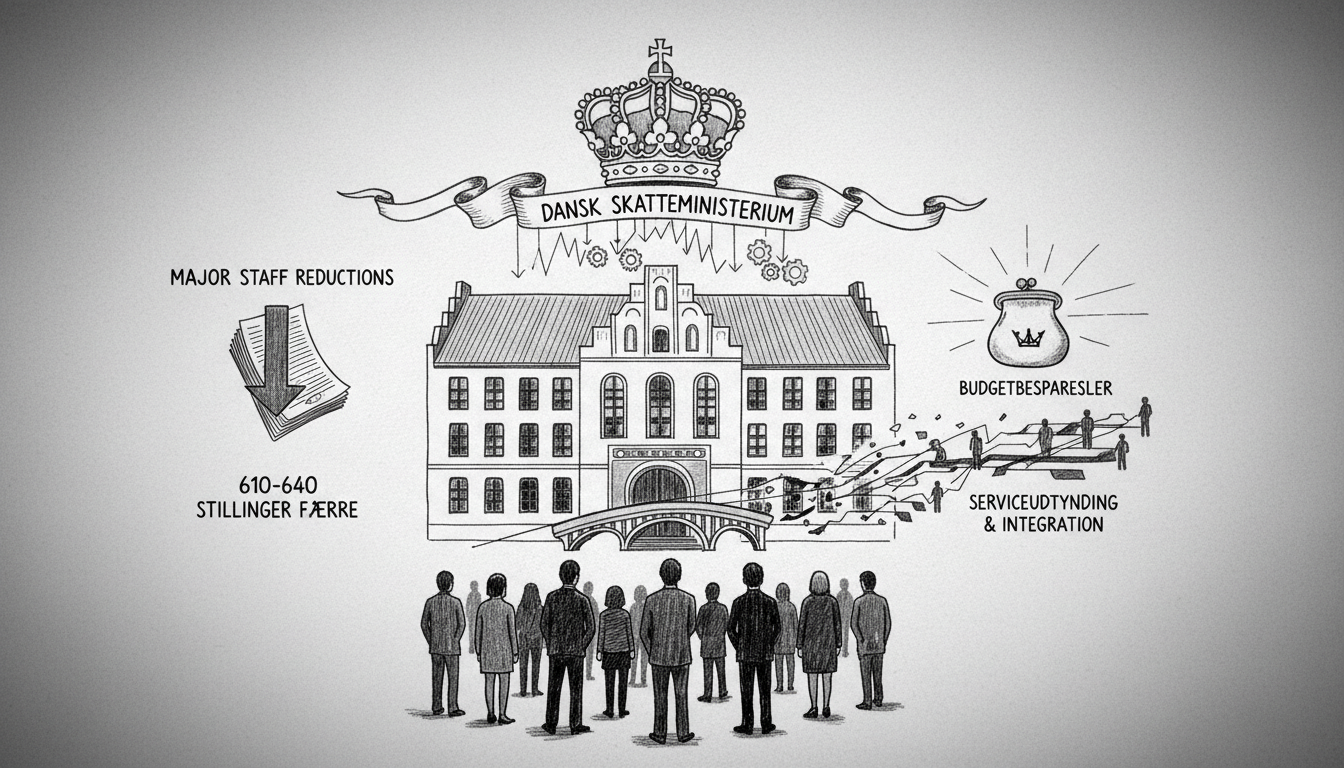The Danish Tax Ministry has revealed plans for substantial workforce reductions across six government agencies. This decision responds to tightening budget constraints affecting multiple departments. Approximately 610 to 640 employees will lose their positions in the coming months.
The affected agencies include the Tax Administration, Motor Vehicle Agency, Debt Management, Customs Agency, Development and Simplification Agency, and Administration and Service Agency. These cuts form part of a broader government efficiency program aiming to streamline bureaucratic operations.
The ministry must achieve savings approaching 1.1 billion kroner by 2030. Officials describe these measures as necessary for focusing resources where they provide maximum public benefit. The long-term government work program specifically targets reducing state bureaucracy while maintaining essential services.
This development raises important questions about Denmark's welfare system and public service delivery. How will these reductions impact tax processing times or customs operations? International residents and businesses relying on these services should prepare for potential delays.
Danish integration policies often emphasize stable public sector employment for newcomers. These cuts might affect job opportunities for immigrants seeking government positions. The timing seems particularly challenging given ongoing efforts to strengthen workforce integration.
Municipal social centers already face increased demand for services. Reduced staffing at key agencies could create additional pressure on local support systems. Community leaders express concern about potential service gaps affecting vulnerable populations.
Government representatives maintain that these changes will ultimately improve efficiency. They argue that modernizing processes and eliminating redundant positions will benefit both taxpayers and service users. The real test will come in implementation and whether service quality remains consistent.
Copenhagen's integration landscape continues evolving amid these structural changes. International residents should monitor how these workforce reductions affect processing times for residence permits, tax cards, and other essential documents. Local social centers may need to expand guidance services to help navigate potential bureaucratic challenges.
These staffing changes reflect broader European trends toward government digitization and efficiency. Denmark's approach warrants observation as other Nordic nations face similar budgetary pressures. The balance between fiscal responsibility and service quality remains delicate across Scandinavian welfare models.

